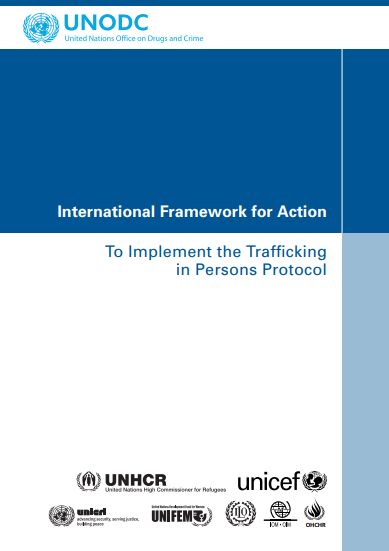The Protocol to Prevent, Suppress and Punish Trafficking in Persons, especially Women and Children (UN Trafficking in Persons Protocol)
The Protocol to Prevent, Suppress and Punish Trafficking in Persons, especially Women and Children (also referred to as the Trafficking Protocol or UN TIP Protocol) is a protocol to the Convention against Transnational Organised Crime. It is one of the three Palermo protocols, the others being the Protocol against the...

